McGill researchers undertake innovative projects
By McGill Reporter Staff
Researchers from McGill, the Research Institute of the McGill University Health Centre (RI-MUHC) and The Neuro (MNI) have received Innovation Grants from the Canadian Cancer Society (CCS) for their respective research projects. Their projects are among the 46 selected across Canada and awarded by the CCS for nearly $9 million. Here is a rundown of the various projects:
New procedures towards making stem cell transplantation more effective for blood cancer patients; $191,810 Innovation Grant
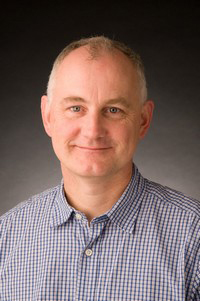
People with blood cancers (such as leukemia and lymphoma) often require transplants of hematopoietic stem cells (HSC) from bone marrow, as the high levels of chemotherapy and radiation they endure to kill their cancers also destroy many normal bone marrow cells. Dr. Volker Blank has found that mice without a protein called Nfe213 have more HSCs. In this project they are using laboratory models to understand how the protein controls the number of HSCs, which could ultimately lead to new procedures that would make stem cell transplantation more effective and efficient for blood cancer patients.
Volker Blank, is an Associate Professor in Department of Physiology in the Faculty of Medicine, and a researcher at the Lady Davis Institute
A clinic to improve accessibility for palliative care in advanced cancer patients; $280,851 Innovation Grant
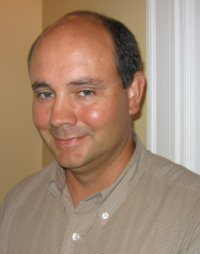
Patients newly diagnosed with advanced cancer are often confronted by many complex physical and psychological symptoms that impact their day to day functioning and quality of life. Dr. Bruno Gagnon’s project aims to compare two ways of delivering palliative care (PC) to these patients within a community based setting. Patients will receive an intervention from either a physician nurse PC team, or an interdisciplinary PC team (physician, nurse, nutritionist, physical therapist, occupational therapist, psychologist and social worker). The researchers will compare patients’ encounters with the health care system and experiences throughout the cancer journey with the goal of optimizing their end of life care and quality of life.
Bruno Gagnon is an Adjunct Professor in the Department of Oncology, Faculty of Medicine
Cachexia: Role of stress granules in preventing cancer-induced muscle-wasting; $197,074 Innovation Grant

Cachexia is a syndrome characterized by the excessive loss of body weight frequently seen in patients with chronic diseases such as cancer. Loss of body mass in these patients is associated with the rapid wasting of muscle tissue. The elucidation of mechanisms involved in the induction or prevention of cachexia is undermined by the fact that it accounts for 20 to 50 per cent of all cancer deaths. Dr. Imed Gallouzi is working to establish that the formation of prosurvival entities named Stress Granules (SGs) in muscle fibres could be a novel, innovative strategy to prevent cancer induced muscle wasting.
Imed Gallouzi is a Professor Department of Biochemistry, Faculty of Medicine at McGill University
Inflammation: the development and progression of cancer; $192, 305 Innovation Grant

Dr. Russell Jones will be studying how inflammation can influence the development and progression of cancer. He has found a specific protein called LKB1 that normally acts as a brake on T cell function. T cells are the soldiers of the immune system, and normally function to fight off infection. However, Dr Jones has found that T cells lacking LKB1 are “hyperactive” and can promote inflammatory diseases. His research will test whether this protein regulates tumour development through its ability to control local or systemic (body wide) inflammation. He will also test whether we can use existing drugs to block inflammation and reduce cancer incidence.
Russell Jones is an Assistant Professor in the Department of Physiology, Faculty of Medicine at McGill University, and Rosalind and Morris Goodman Cancer Centre
Breast cancer: Targeting beta catenin to stop tumour progression driven by ErbB2; $195,000 Innovation Grant
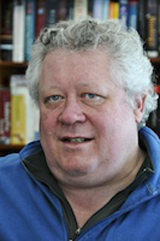
Many genes are linked to cancer, but how they work is not always well understood. Dr. William Muller is studying a cancer causing gene called ErbB2 – the target of the widely used breast cancer drug Herceptin. He found that another gene called beta catenin influences how ErbB2 is expressed, and is now studying whether targeting beta catenin can stop tumour growth driven by ErbB2. This could have an impact on the 25 30 per cent of breast cancers that express high levels of ErbB2.
William Muller is a member of the RI-MUHC based at McGill University and he is a professor at the Rosalind and Morris Goodman Cancer Research Centre.
Gastric cancer: Regulating the gene Met to improve treatment efficiency; $200, 000 Innovation Grant
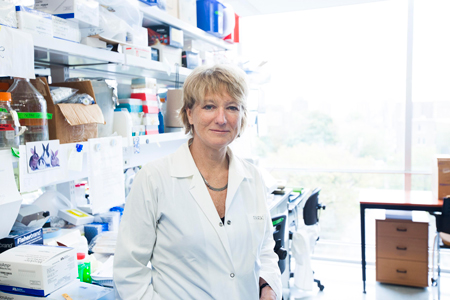
Dr. Morag Park has been studying a group of genes called receptor tyrosine kinases (RTKs) that are overactive in many cancers. She has found that one RTK, called Met, promotes the growth and spread of many different cancers. In at least 20 per cent of stomach cancers that typically have poor outcomes, Met helps cancer cells resist treatment. In this project she is developing new ways to make tumour cells responsive to treatment by regulating Met, which could improve outcomes not only for people with stomach cancer but also many others such as lung and colorectal.
Morag Park is a member of the RI-MUHC based at McGill University and she is the Director of the Goodman Cancer Research Centre.
New tumour suppressing proteins involved in start and spread of tumours such as lymphoma or lung cancer; $200,000 Innovation Grant
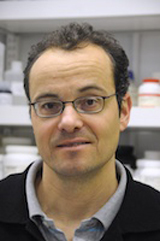
In all cells, signals are transferred from their surface to the inside to tell them whether to divide, die or spread into nearby tissue. In cancer cells some of these signals to spread are always active, causing tumours to form. Dr. Arnim Pause has found a new group of proteins, called ESCRT, which acts as a tumour suppressor in cells by blocking growth signals. In this project he is studying how ESCRT proteins stop these signals and which of these proteins are mutated in human cancers. This research could lead to new targets for drug development.
Arnim Pause, Associate Professor, Department of Biochemistry, McGill Faculty of Medicine, Rosalind and Morris Goodman Cancer Centre
Brain cancer: Development of novel therapeutics to prevent brain cancer invasion; $170, 500 Innovation Grant
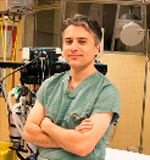
Dr. Kevin Petrecca is studying the genetics involved in the spread of the most common adult brain cancer, glioblastoma. They have found a gene called DRR that is an important driver of cancer spread. He is now developing a gene silencing treatment to block DRR expression and testing its effectiveness in a preclinical mouse model.
Kevin Petrecca is a member of the RI-MUHC based at the Neuro and he is an assistant professor of Neurology and Neurosurgery at McGill University.
A promising anticancer strategy: New therapies to inhibit protein synthesis in cancer cells; $1 141, 236 Innovation Grant
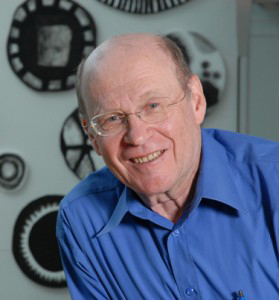
Drugs that target protein building machinery inside cancer cells are promising new strategies for cancer therapies. As a world expert in the field, Dr. Nahum Sonenberg is testing some of these drugs that are already in clinical trials to understand exactly how they work, determine whether combining them can enhance their anti cancer effects, and identify those that can prevent the spread (metastasis) of cancer that is a major cause of cancer related death. He is also searching for biomarkers to help clinicians predict whether patients will respond to these treatments.
Nahum Sonenberg, James McGill Professor in the Department of Biochemistry and the Rosalind and Morris Goodman Cancer Research Centre at McGill University
Prostate cancer: Studying effects of androgen therapy on stromal cells; $135,500 Innovation Grant
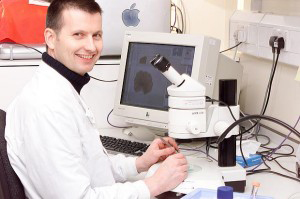
A conventional treatment for prostate cancer is the removal of male hormones called androgens, which provides temporary treatment benefit by reducing tumour growth. Dr. Axel Thomson and his team are studying the effects of androgens, not on tumour cells, but on surrounding stromal cells that support and control tumours. This is the first study looking at how gene expression changes in stromal cells are influenced by androgen deprivation therapy, and could cast new light on how this treatment works. The goal is to develop more targeted and effective treatments that could overcome challenges related to drug resistance.
Axel Thomson is a member to the RI-MUHC based at the Montreal General Hospital and a professor of medicine at McGill University.
New treatment for multiple myeloma, blood cancer; $200,000 Innovation Grant
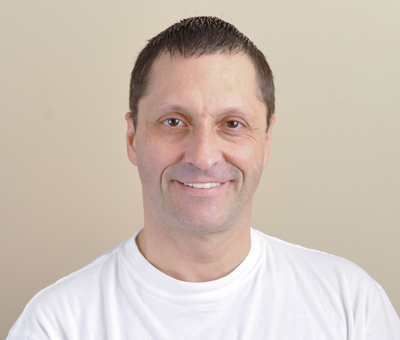
Multiple myeloma is a blood cancer with a poor prognosis. Recently, it was discovered that a molecule called CS1 is expressed on the surface of almost 100 per cent of multiple myeloma cells. A drug called elotuzumab was created to specifically target CS1, however there is still a poor understanding of how this drug works and its side effects. Dr. Andre Veillette is developing a mouse model that expresses human CSI to study this drug, a crucial step in bringing this potential treatment to the clinic and understanding which cancer patients may benefit from it.
Andre Veillette is an Adjunct professor in the Faculty of Medicine
Bone metastasis: improve patient’s quality of life and prevent relapse with bone implants; $199, 710 Innovation Grant
When cancer spreads into a patient’s bones, the result can be painful bone metastases which often require surgical removal. Unfortunately, surgery can leave a hole in the bone which must then be filled by an implant; if some cancer cells have remained hidden in the bone, a patient may also have a relapse after surgery. Dr. Michael Weber is using 3D printing technology to produce bone implants that can be filled with anticancer drugs to deliver high doses of treatment to the cancer site and prevent relapse. In this project they are testing their idea in mice with the ultimate goal of providing a new treatment for patients that will also improve their quality of life.
Michael Weber is a member of the RI-MUHC based at the Montreal General Hospital and he is an assistant professor in the McGill Department of Surgery.
A complete list of the research projects is available here.
